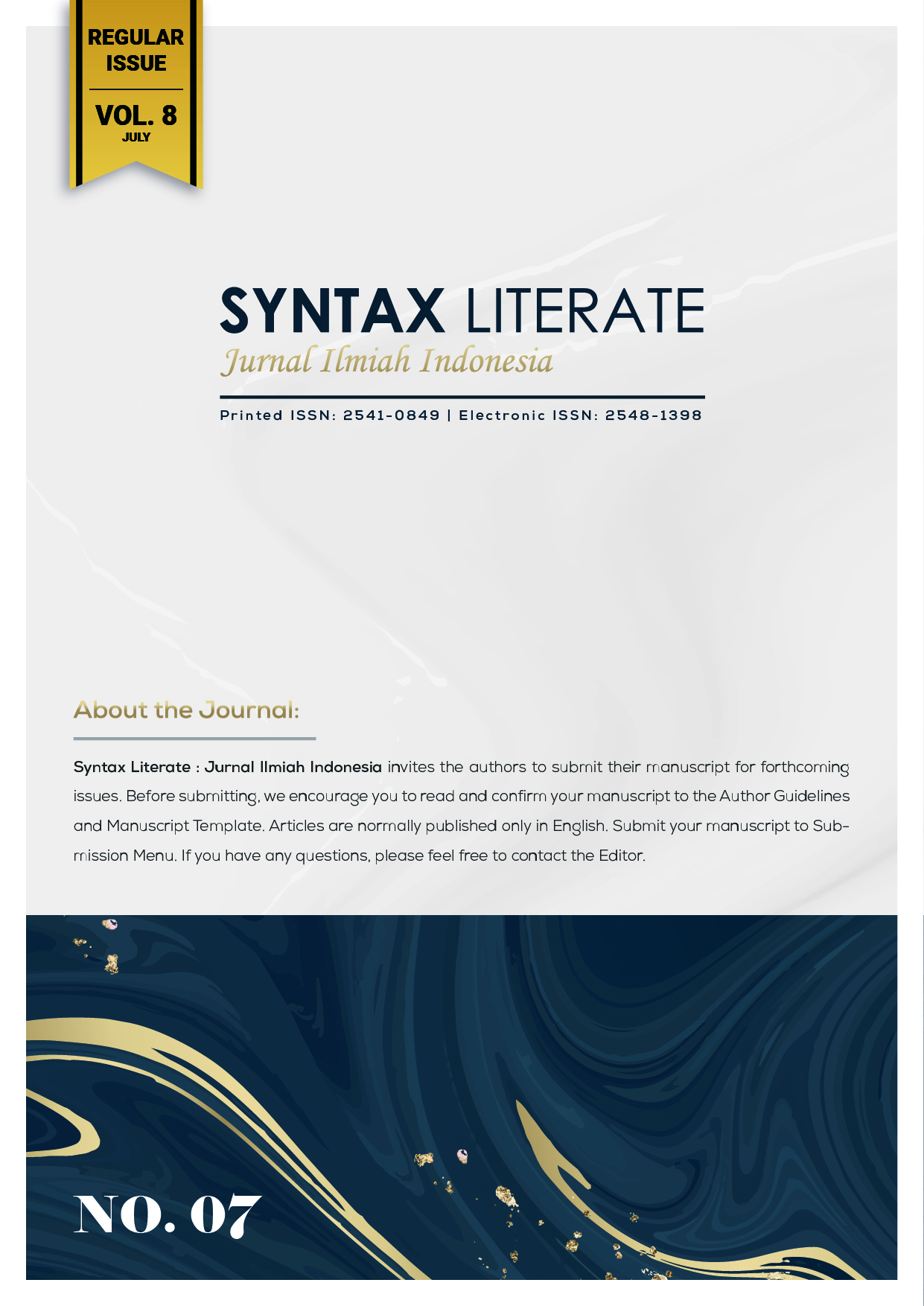Revisi Kebijakan Pengangkatan PLT Kepala Daerah
Abstract
The purpose of this investigation and analysis is to produce a plan for how to elect temporary regional heads in perfect local government. The termination of the 2022 regional elections is a consequence of the 2024 simultaneous regional elections. The Indonesian government will then appoint dozens of regional governors to serve as interim leaders until a permanent replacement is found. In terms of the problem framework, this study asks, "First, what is the problem with the mechanism for appointing acting regional heads?" "Second," you may wonder, "how do you reorganize the authority to appoint acting regional heads? Using primary and secondary sources, this study uses normative juridical research as its methodology. In the end, this analysis concludes: In Indonesia's current administration of regional government, the system of appointing acting regional heads has the potential to create political conflicts of interest, if political coalitions propose a president and vice president, they can bow to the interests of the coalition and elect acting regional heads who are not neutral. Second, the low legitimacy of regional heads who act for two years without being elected by the people. Third, the ability to elect regional heads temporarily must be reorganized. Moreover, the local government statute expressly states that the position of the regional head is held by the regional secretary (sekda), making the regional secretary the most likely alternative for the regional head and protecting him from political interests.
Downloads
References
Ghafur, J. (2023). Demokratisasi Internal Partai Politik Era Reformasi: Antara Das Sollen dan Das Sein. Jurnal Hukum IUS QUIA IUSTUM, 30(1), 1–25.
Hanafi, R. I. (2014). PEMILIHAN LANGSUNG KEPALA DAERAH DI INDONESIA: BEBERAPA CATATAN KRITIS UNTUK PARTAI POLITIK DIRECT ELECTION FOR LOCAL LEADERS IN INDONESIA: SOME CRITICAL NOTES FOR POLITICAL PARTIES. Jurnal Penelitian Politik| Volume, 11(2), 1–16.
ISMAIL NURDIN, M. S. (2017). Etika Pemerintahan: Norma, Konsep, dan Praktek bagi Penyelenggara Pemerintahan. Lintang Rasi Aksara Books.
Kaloh, J. (2009). Kepemimpinan Kepala Daerah (Pola kegiatan kekuasaan dan perilaku kepada daerah dalam pelaksanaan otonomi daerah).
Nasution, E. (2016). Problematika pendidikan di Indonesia. Mediasi, 8(1).
Purwidayani, V., & Slamet, K. (2022). Retrospective Voting Pada Pemilihan Kepala Daerah Di Indonesia: Akuntabilitas Keuangan dan Kinerja. Jurnal Pajak Dan Keuangan Negara (PKN), 4(1S), 220–235.
Rampengan, M. (2016). Analisis Efektifitas Dan Efisiensi Pelaksanaan Anggaran Belanja Badan Perencanaan Pembangunan Daerah (BAPPEDA) Kota Manado. Jurnal Berkala Ilmiah Efisiensi, 16(3).
Simanjuntak, D. (2017). Pengisian Jabatan Anggota Badan Pemeriksa Keuangan (BPK) Untuk Mewujudkan BPK Yang Independen. Jurnal Hukum & Pembangunan, 47(2), 239–266.
Zarkasi, A. (2010). Pembentukan Peraturan Daerah Berdasarkan Peraturan Perundang-Undangan. INOVATIF| Jurnal Ilmu Hukum, 2(4).
Copyright (c) 2023 Angga Rosidin, Iip Mualip, A'rif Rokhman, Leo Agustino, Rina Yulianti

This work is licensed under a Creative Commons Attribution-ShareAlike 4.0 International License.











